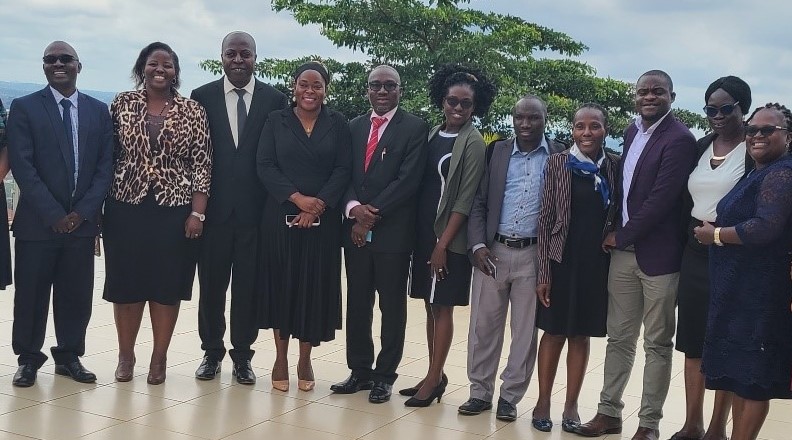Global Water Leadership Program East Africa (GWPEA) in partnership with Ministry of Water and Environment as a focal point through the SDG 6 IWRM Support Programme (IWRM SP) is piloting the gender mainstreaming checklist in Uganda in preparation for the official SDG 6.5.1 reporting round in 2023. This is in relation to the integration of gender in IWRM. In reporting on SDG indicator 6.5.1, the United Nations UN Member States including Uganda, submit a survey-based assessment on the status of implementation of Integrated Water Resources Management (IWRM). The survey contains gender-related questions on the inclusion of gender in laws/plans or similar in water resource management (WRM). Based on the survey results from the previous year’s 2017, 2020, and from the communication with country focal points persons for SDG 6.5.1 monitoring, many countries including Uganda struggle with meaningful integration of gender considerations in their national, transboundary, and local water management. It’s against this background that the gender mainstreaming checklist is being piloted in Uganda.
The exercise was conducted on 28th March 2023 at Skyz Hotel Protea Kampala.
The Meeting was conducted in a participatory manner involving all the key stakeholders in the country working with water, development, and gender issues. The stakeholders were from Ministry of Water, and Environment, Uganda Water Partnership, Ministry of Gender, Labour, and Social Development, CSOs representatives i.e., UWASHNET Local Government representative among others.
Key highlights from the meeting:
- The focus of the ministry is on SDG 6.5 i.e., implementing the integrated water resources management approach for sustainable development. This is the 3rd year of monitoring SDG 6.5 ever since 2021.
- SDG 6.5 has 6 targets, and each target has a performance indicator
- The survey contains a gender-related question on the inclusion of gender in laws/plans or similar in water resource management (WRM) (question 2.2d) and Uganda Scored 50 as the average scores
General Observations of on the checklist
Based on the testing of the gender mainstreaming in IWRM survey checklist, the following general observations were made:
i. The checklist doesnt adequately address some important gender-related issues such as Persons with Disabilities (PWDs), refugees, and gender-based violence. These issues are linked to gender and should be incorporated into the checklist.
ii. Some of the questions in the checklist were broad and required further explanation to the respondents.This can lead to confusion among respondents and affected the quality of data collected.
iii. Some of the questions were repetitive in nature and focused on one issue but were coined differently. This redundancy can lead to a waste of time and resources during data collection.
iv. The checklist did not cater to questions that required descriptive explanations. This could have limited the quality of data collected and affected the accuracy of the results.
v. The checklist was limited to closed-ended questions requiring only a yes or no response. This could have limited the ability to capture nuanced responses and led to oversimplification of complex issues.
some of the recommendations to improve the checklist included:
- Separate broad questions into two: The broad questions in the checklist should be separated into two to make it easier for stakeholders to respond and provide specific feedback.
- Make the checklist open-ended: The checklist should be made open-ended to allow stakeholders to provide detailed feedback and not limit them to a simple yes or no answer.
- Include footers to offer explanations: Footers should be included in the checklist to offer explanations for some of the concepts to avoid ambiguity and ensure that stakeholders have a clear understanding of the terms used.
- Incorporate issues of PWDs, elderly, and refugees: The checklist should be inclusive and incorporate the issues of Persons With Disabilities (PWDs), elderly, and refugees to ensure that their perspectives are considered
The exercise created awareness on gender mainstreaming within the 6.5.1 survey through the discussions and responses to gender-related questions. Through the discussions and responses , stakeholders were able to engage with the concept of gender mainstreaming in IWRM and understand its relevance in the context of the 6.5.1 survey. This engagement and understanding are indicative of an increased awareness of gender mainstreaming within the 6.5.1 survey. Furthermore, the insights gained from the discussions and responses to gender-related questions will inform the design and implementation of gender-focused IWRM actions in Uganda.
